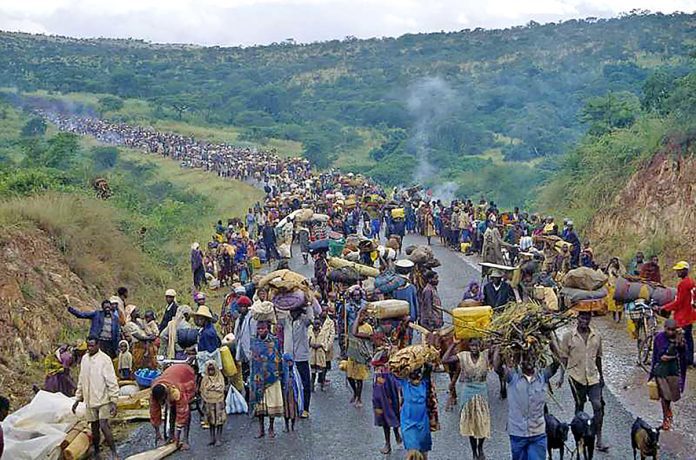South Africa’s pride is its constitution, lauded globally by jurists, legal academics and constitutional lawyers as one of the best in the world – embellished by some of the best practices drawn from various jurisdictions, including Germany, the US and Canada.
Our own indigenous legal culture and ubuntu practices form an integral part of it.
Evolving out of the new democracy of 1994, and the signing into law of the supreme constitution of 1996, the net effect of these events has drastically changed the country’s political trajectory.
But more fundamentally, the founding provisions of the constitution place emphasis on the following values:
- Human dignity, the achievements of equality and the advancement of human rights and freedoms;
- Non-racialism (or racism) and non-sexism;
- Supremacy of the constitution and the rule of law; and
- Universal adult suffrage, a national common voters’ roll, regular elections and multi-party system of democratic government, to ensure accountability, responsiveness and openness.
Through the new constitution the country became a trendsetter in Africa and the world. It is significant to note that even Rwanda, coming out of its political ruin and strife of tribal divisions, followed South Africa by developing a new constitution in 2003, almost a carbon copy of South Africa’s.
In part, the new constitutional endeavour was in response to the genocide madness that decimated the nation as a result of unending tribal animosity.
With all its other imperfections, Rwanda is on course to rebuild the country, using its new constitution to achieve the objective. Rwanda, like South Africa, is seeking to heal the wounds of past racial and tribal conflicts, using its new constitution to banish discrimination based on ethnicity, tribalism or any form of discrimination, to unite the nation.
Today, the country embraces pluralistic democracy, and progress and development are products of this effort.
Like SA, Rwanda embraces a presidential system of government, with separation of powers between the three branches of government – legislature, executive and judiciary. The president is directly elected by the electorate, and is the head of state and government, elected to serve for a period of seven years for a maximum of two terms.
The country is divided into five provinces, with provinces divided into districts, each with its own council and executive committee.
More significantly, in Rwanda the constitution, which includes basic safeguards to human rights, political organisations are barred from organising along racial, ethnic, tribal or religious lines.
What lessons are there to be drawn?
First, South Africa has been a trendsetter in promoting constitutional democracy. Rwanda embraces most of the features South Africa borrowed from other jurisdictions, such as the doctrine of separation of powers.
At the onset of our democracy, we abolished parliamentary sovereignty, a system in which all public power resides in the all-powerful legislature, which could do what it pleases without accountability, whether legal or not, by passing unconstitutional laws such as those that discriminate on the basis of colour, knowing that its authority could not be checked or limited or challenged by other arms of government, such as the judiciary.
This practice contributed to the abuse of political power, and the creation of an apartheid state between 1948 and 1994.
It is difficult, though, to understand the logic of political proponents who hanker for a return of the principle of sovereignty of parliament. In this system, legislators are kings, and presumed to be incapable of doing any wrong, and often have the final word on law-making processes, often with no regard for the principle of legality.
Apartheid and injustice thrived under the National Party’s system. There were no checks and balances. The apartheid parliament routinely passed laws that oppressed black people.
South Africans should not allow populism and warmongering to win the day. In a democracy there are no kings, or demagogues or populists. Rwanda learnt the hard way, with the millions of lives lost, but now reaps sweet fruits of a relatively peaceful country.
- Mdhlela is a freelance journalist, an Anglican priest, ex-trade unionist and former publications editor of the South African Human Rights journals
Follow @SundayWorldZA on Twitter and @sundayworldza on Instagram, or like our Facebook Page, Sunday World, by clicking here for the latest breaking news in South Africa. To Subscribe to Sunday World, click here.



